The new "Immortal Sword" is online, why is it difficult for Hu Ge and Liu Yifei to surpass?
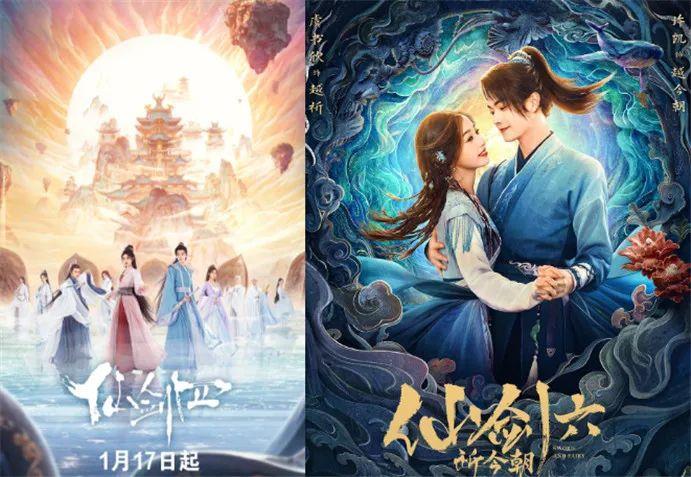
1905 movie network feature In 2003, "Li Xiaoyao" would not have imagined that 20 years later, he would become the "Bao Zong" on the Yellow River Road and meet "Zixuan" again.
Starring in "The Legend of the Immortal Sword and the Fairy Sword and the Fairy Sword and the Fairy Sword and the Third" has become a classic of the immortal drama and the ancient puppet drama, and the comparison and discussion about the two dramas has never stopped. After the conclusion, the battle of "Immortal Sword" starts again:
On January 17, "Immortal Sword IV" was airborne, and "Praying for the Present" (Immortal Sword VI) followed closely on January 18 to go LIVE. Under the coincidence of schedules, "Legend of Immortal Sword and Fairy Sword", "Legend of Immortal Sword and Fairy Sword and Fairy Sword III" and "Immortal Sword Cloud" announced the opening and exemption restrictions. The three major video platforms switched the "Immortal Sword" mode at the same time, and the new and old episodes adapted around the classic IP opened the "Sword" duel.
In addition to the "Three Swords Competition", which is not a coincidence, there is a "three-match" between the fans of the series, the fans of the stars, and the gamers in terms of word-of-mouth and ratings.
Outside the drama, the actors torn the rankings on the hot search, the fans for the idol platform, the two new dramas pulled each other; in the drama, the car wear gang, cheap special effects, people set the plot magic change, the acting is constantly complaining, the audience who revisited the old drama is even more direct "No Hu Ge, no fairy sword!"
The word of mouth is polarized, and who is the winner in the controversial Immortal Sword IP showdown?
Adapted by Immortal Sword, open high and walk low?
The "Immortal Sword" series is an irreplaceable existence in the field of games and dramas.
In 1995, the first generation of "Legend of the Sword" was released. Once launched, it won numerous game awards and was praised by many players as the masterpiece of domestic games. At present, in addition to derivative online games and mobile games, nine games have been released. After 29 years, it can be said to be a representative of domestic stand-alone games.
As the first attempt to adapt a game into a TV series in China, the TV series "Legend of Sword and Fairy" directly opened up a wave of creation of fairy-tale dramas and ancient puppet dramas. After discovering actors such as Hu Ge and Wang Xueqi, "Legend of Sword and Fairy III" made the then young actors, Wang Xueqi, Wang Xueqi and Wang Xueqi shine.
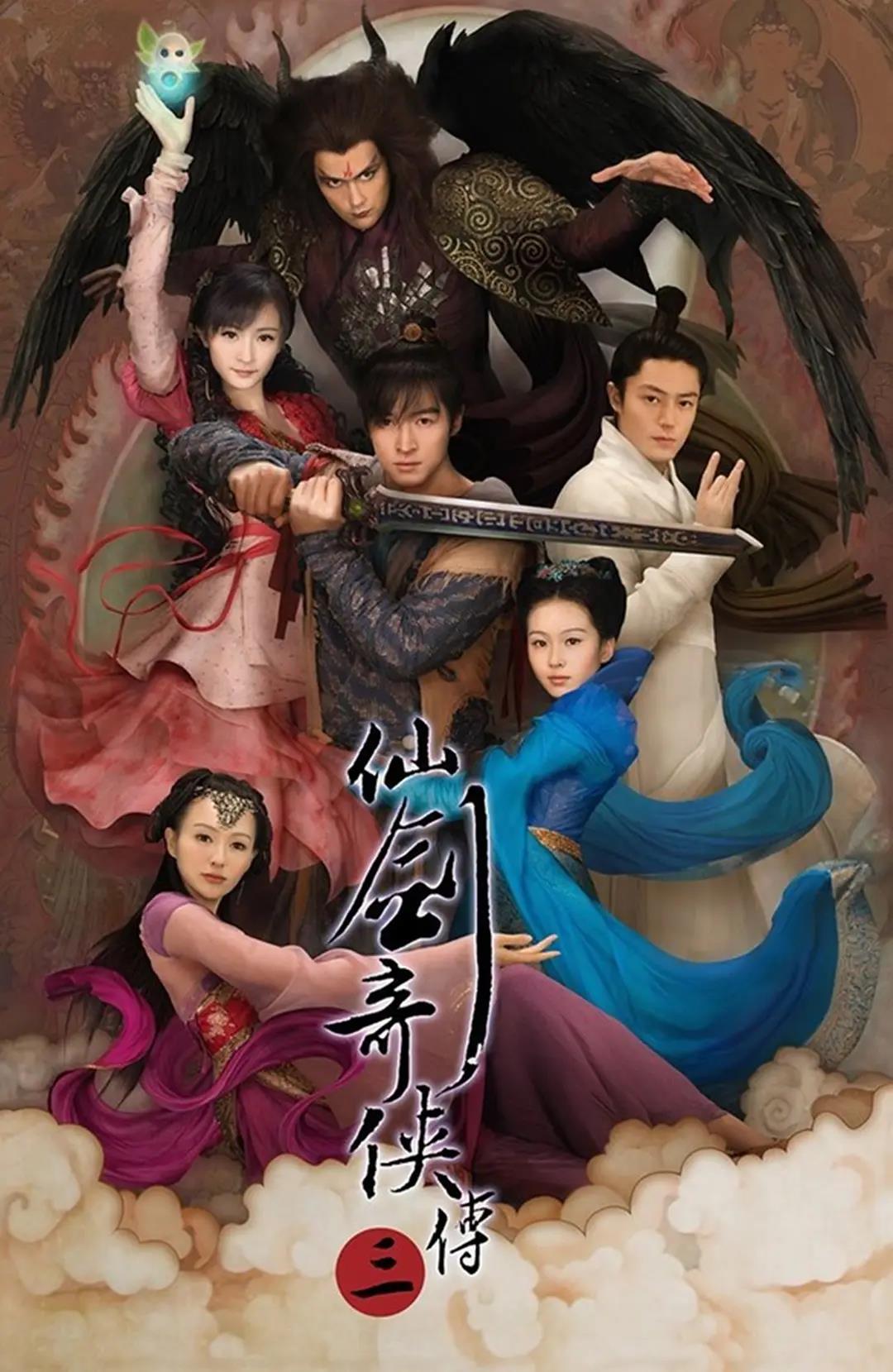
You may not have played "The Legend of Sword and Fairy", but you must have watched it.
However, after the Xianxia and ancient costume drama genres became popular, the Chinese Paladin series did not have any new adaptations or remakes for a long time.
Whether it’s the game’s perfect worldview and excellent plot, its wide audience, huge fan base, or the powerful "star-making" ability shown in previous games – the actors’ popularity has skyrocketed thanks to their roles, the Chinese Paladin IP itself has shown great adaptation potential and commercial value.
However, due to the particularity of "Legend of Sword and Fairy" itself as a game, subsequent works are not sequels, but just share a similar worldview. The stories are independent of each other and have no connection. The narrative of the game is also more special. In addition, it focuses on more conceptual themes such as fate, reincarnation, searching for immortals, and ties. This also makes subsequent adaptations somewhat difficult at the text level and difficult to touch the core.
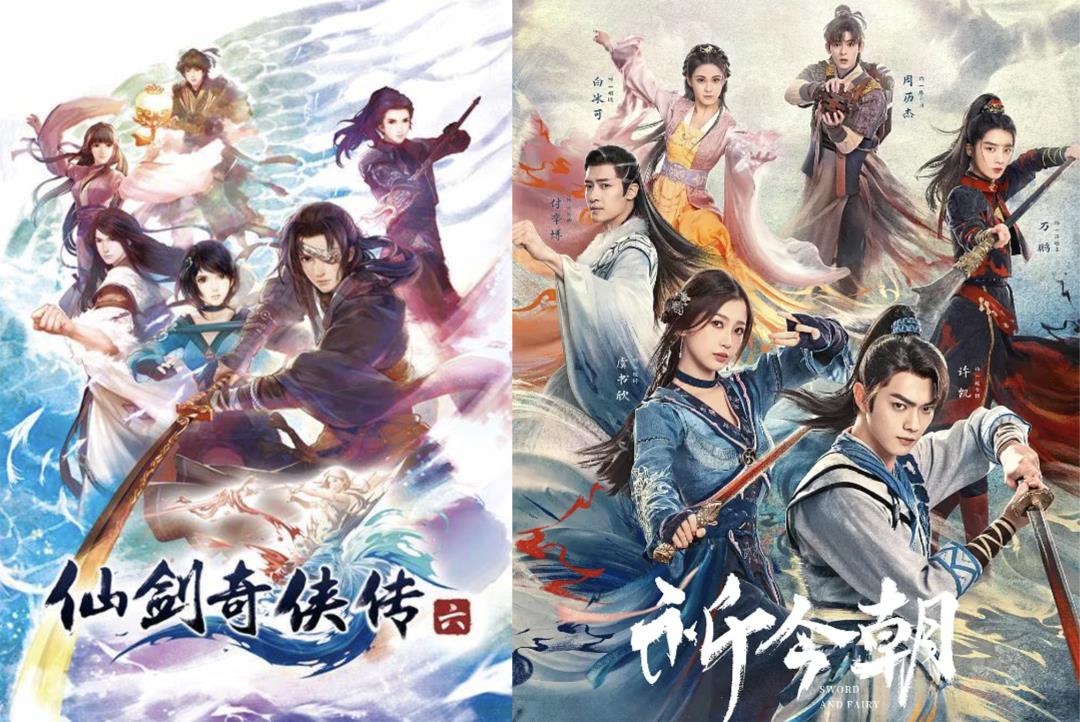
In 2016, seven years after the completion of "Chinese Paladin III", "Chinese Paladin: The Clouds of the World", adapted from "Chinese Paladin V", was broadcast. Even though it was produced by the same company, it received almost no attention, and the response was mediocre. The score was only 4.0, and its reputation declined significantly compared to its predecessor.
In fact, a TV series adapted from "Chinese Paladin 4" was approved in the same year, but it was delayed for another seven years.
In 2018, the first part of "The Chinese Paladin" was announced to be remade and named "The Legend of Sword and Fairy". It has been completed and renamed "See You Again" and is waiting to be broadcast. The "The Chinese Paladin 2" series will also start filming in 2022. Currently, except for "The Chinese Paladin 7" released in 2021, the rest of the original games have film and television adaptations.
The market and the audience still have hope and expectations for the "Legend of Sword and Fairy" IP, but at a time when ancient idol fantasy dramas have gradually declined and become synonymous with bad movies, the journey to reboot "Legend of Sword and Fairy" is difficult.
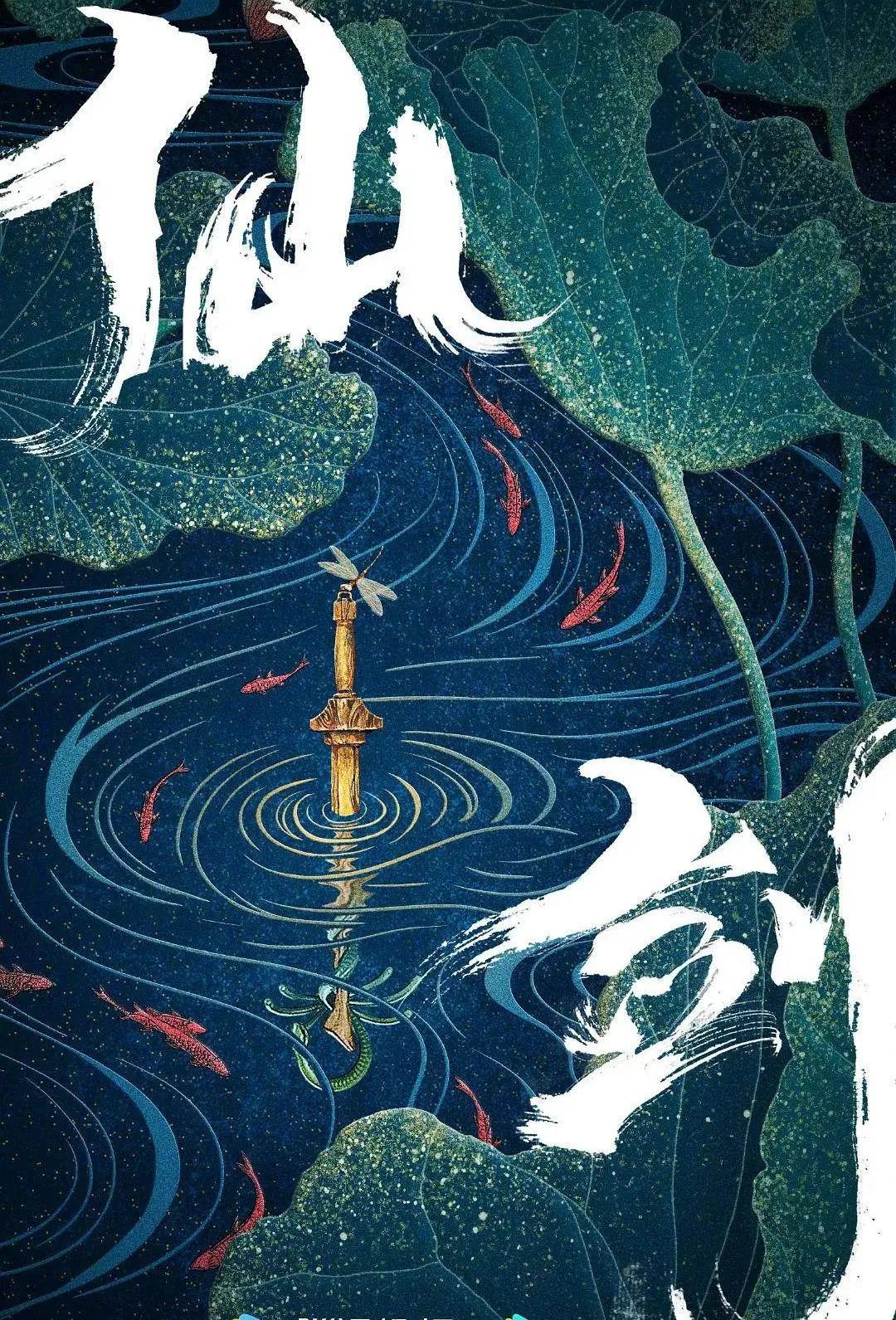
Rebooting a classic IP, is sentiment the key?
As a re-attempt to adapt "Immortal Sword" and a reboot of the classic IP, "Immortal Sword IV" and "Praying for the Present" obviously realized the difficulty of adaptation, and accurately grasped the audience of the film. They played emotional cards around drama fans and game fans, paying tribute to their predecessors and games.
"Immortal Sword IV" uses the same theme song as the game "Dream Back to Immortals". In the play, some of the original sound music in the game is used as the soundtrack, which restores the key skills, pictures and lines in the game. Pig demons tied to the table, frozen Shishengxi caves and other clips and easter eggs make many gamers call for memories to kill. Immortal Sword series producer, "Father of Immortal Sword" Yao Zhuangxian also forwarded Weibo and said that some clips of "Immortal Sword IV" are very restored.
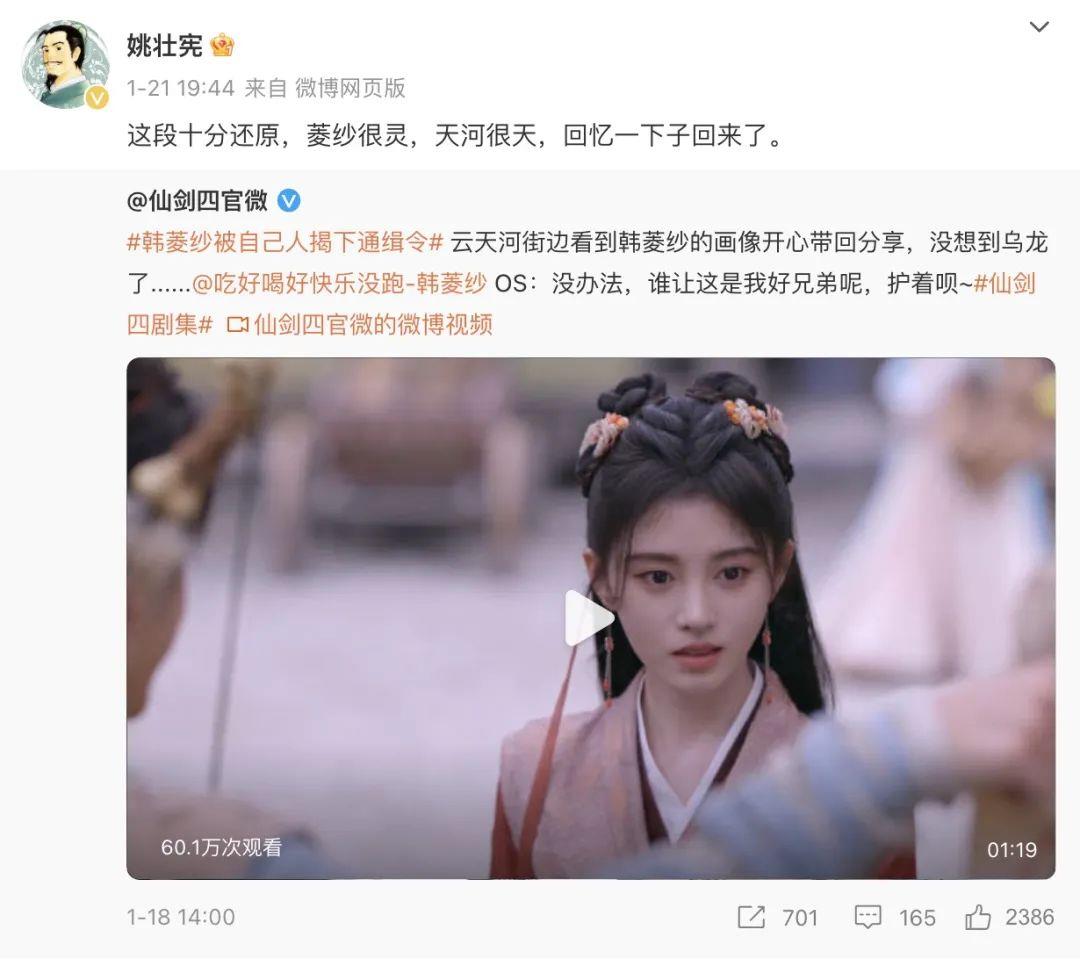
"Praying for the Present" and "Immortal Sword IV" have played back and forth. From the poster, the cover design of the game is paid tribute to the characters’ movements and positions, and the play also pursues restoration of costumes, shapes, props, etc. In music, it is even more sincere. The JS group who previously sang the theme song "Kill the Wolf" of "The Legend of Immortal Sword and Hero" sang the theme song "Miracle"; Zhang Yunjing, the singer of the popular episode "Preference" in "The Legend of Immortal Sword and Hero III", was also invited to sing the episode "Love Rises with the Wind".
The audience obviously resonates with these tributes and details, but only relying on selling feelings cannot make the audience pay, let alone support word-of-mouth, and make up for the defects and regrets of the play content and performance itself. From the magic changes imposed on the plot’s emotional line, the actors’ acting complaints, to the controversies and issues such as questioning the quality of production and the reduction degree of casting selection, it seems that "Xianjian IV" and "Praying for the Present" are unsatisfactory at the beginning of the reboot of this "Xianjian" IP.
As an immortal drama, it was not enough to be "immortal", but also lost the core of "Xia", and was reduced to a shoddy ancient puppet drama and romantic drama, which made the real immortal sword fans feel sad. Under the "Memory Kill", the audience that could still have it would instead choose to revisit the classic series or play the game again.
In addition, unlike "Xianjian One" and "Xianjian Three", which focus on plot polishing, face a wide audience, and explore the "star-making myth" of young actors, Xianxia dramas are increasingly keen to choose traffic stars to star, when fans only pay attention to the ranking of their idols rather than the image itself, ignoring the intelligent character and pompous acting skills, Xianxia dramas may fall into the self-consumption of traffic fast food in attracting capital, and exult in the circle carnival within the service of specific fan groups.
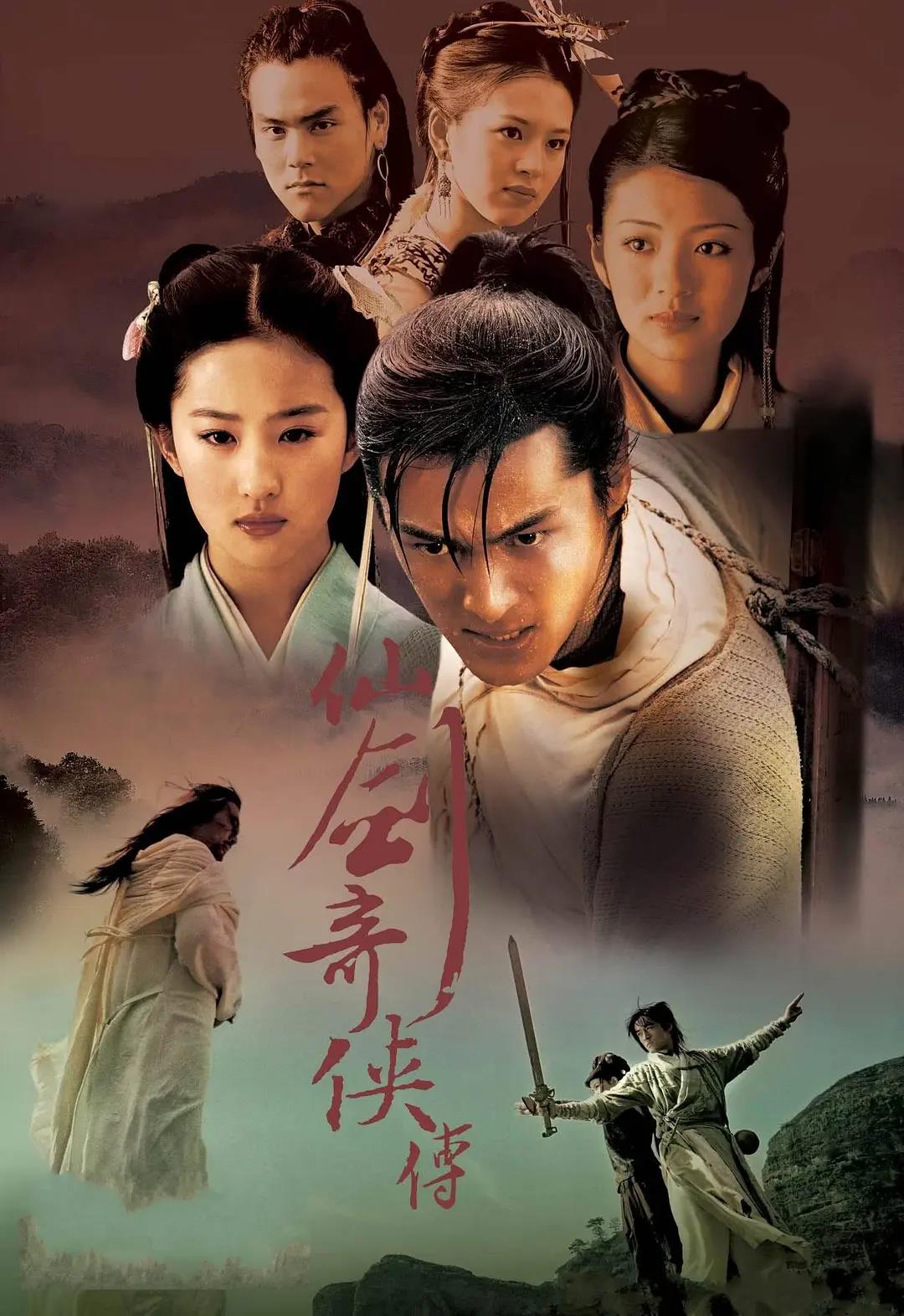
Fate is ill, can the fairy sword universe come true?
The young hero who once held a sword in front of the computer has reached middle age, and the immortal sword that has gone through nearly 30 years is also constantly looking back at the past glory.
At the beginning of the news of the adaptation of "Immortal Sword IV", gamers were the most excited. In their eyes, "Legend of Immortal Sword 4" was the pinnacle of the Immortal Sword series, and even the pinnacle of domestic RPG games. However, behind the praise of this "pinnacle" was the helplessness of the continuous decline and loss of the Immortal Sword IP.
In August 2007, shortly after the release of "Legend of Immortal Sword 4", the R & D team of Shanghai Soft Star Technology announced its dissolution, and the core creators established Candle Dragon Information Technology in October of the same year. This also became a watershed for the Immortal Sword series. After Beijing Soft Star Technology took over, "Immortal Sword" was constantly criticized in terms of plot, game design, and optimization, and it was no longer as brilliant as it used to be. There are even many Immortal Sword fans who think that "there is no Immortal Sword after Immortal Four".
Three years later, Candlelong released "Ancient Sword Qitan", just like the legendary story of "Immortal Sword", "Ancient Sword Qitan" became a masterpiece of domestic immortals in the game field. After being adapted into a TV series, it once again brought fire to the ancient immortal puppet drama. Actors such as Yang Mi,,, and others also skyrocketed in popularity due to their roles in the play.
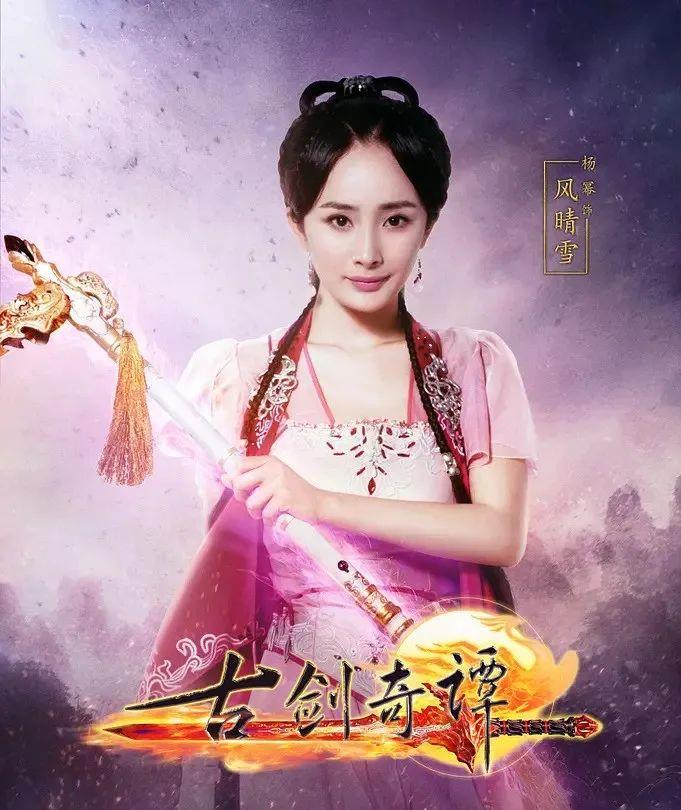
The decline of the "Fairy Sword" game also seems to explain why the series has been difficult to adapt.
In 2021, the mainland copyright of Xianjian IP was sold to China Mobile Games. The company said it would lay out film and television dramas, animations, peripheral derivatives, offline real-life entertainment, virtual idols, etc., to create Xianjian "meta-universe". Two years later, under the influence of declining performance and industry difficulties, the game development team of "Legend of the Fairy Sword" was disbanded. Zhang Xiaoquan, the producer of Xianjian 3 and 4, said that he had tried his best to keep the development of the remake version, but did not respond to the new work.
The two new "Xianjian" have tried their best, but they obviously failed to continue the height of the pioneers of the previous genre, but became industrialized products that followed the market’s prior standards. Whether Xianjian, a once brilliant IP, can have new works to continue its vitality is still unknown.